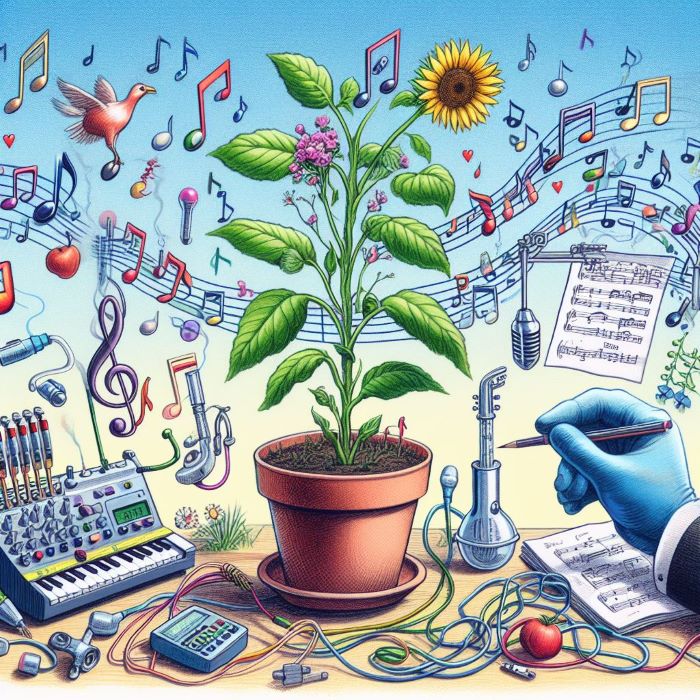The Harmonious Connection: Exploring the Impact of Music on Plants
Discover the fascinating connection between music and plants. Studies suggest music impacts growth, metabolism, and perception in plants, offering a unique approach to gardening and cultivation.
Introduction:
The relationship between music and plants has long fascinated scientists and gardeners alike. While it may seem improbable that plants can respond to sound, numerous studies have suggested otherwise. In this blog, we'll delve into the intriguing world of plant musicology, exploring the potential impact of music on plant growth and well-being.
-
The Sound of Growth:

-
Research has shown that plants may respond to sound waves, particularly those in the frequency range of human speech. Studies have demonstrated that exposure to certain types of music, such as classical or ambient, can influence plant growth, leaf size, and root development. The vibrations produced by sound waves may stimulate plant cells and enhance nutrient uptake, leading to healthier, more robust growth.
-
Melodic Metabolism:

-
Music has been found to affect various physiological processes in plants, including photosynthesis and respiration. Certain genres of music, characterized by rhythmic patterns and harmonious melodies, have been shown to enhance metabolic activity and cellular function in plants. As a result, plants exposed to music may exhibit increased biomass production and improved overall health.
Also Read: Reasons Why You Must Keep a Plant Near Working Area
-
The Power of Perception:

-
While plants lack ears to hear in the conventional sense, they possess sensory mechanisms that enable them to perceive and respond to their environment. Sound vibrations transmitted through the air or soil can be detected by plant tissues, triggering biochemical reactions and gene expression changes. This suggests that plants may possess a rudimentary form of auditory perception, allowing them to detect and respond to acoustic stimuli.
-
Cultivating Harmony:

-
Incorporating music into the garden can be a holistic approach to plant care and cultivation. Whether through ambient background music or intentional sonic experiments, creating a harmonious auditory environment may benefit plant health and vitality. Gardening enthusiasts and researchers alike are exploring innovative ways to harness the power of sound to optimize plant growth and well-being.
-
Practical Applications:

-
While the scientific understanding of music's impact on plants is still evolving, some practical applications have emerged. From agricultural settings to urban gardens, experiments involving sound therapy for plants are being conducted to explore its potential benefits. Whether as a form of stress relief for crops or an enhancement for ornamental plants, music holds promise as a tool for sustainable agriculture and horticulture.
Conclusion:
The notion of music influencing plant growth may sound like something out of a science fiction novel, but the evidence suggests otherwise. While the mechanisms underlying this phenomenon are not yet fully understood, the potential impact of music on plants is undeniable. As we continue to unravel the mysteries of plant musicology, we may discover new ways to cultivate harmony between humans and the botanical world, fostering healthier ecosystems and greener, more vibrant gardens.
